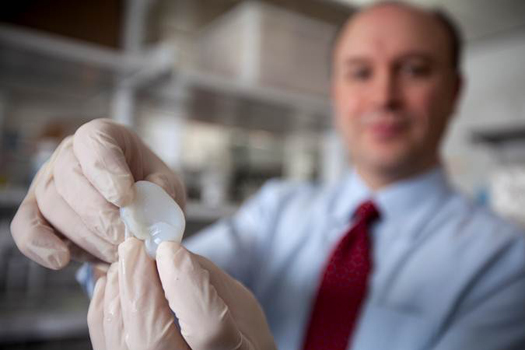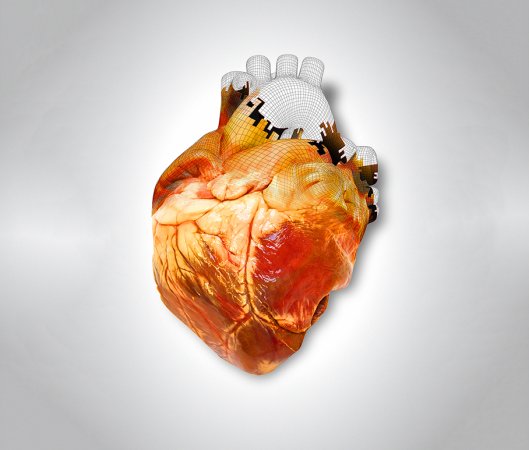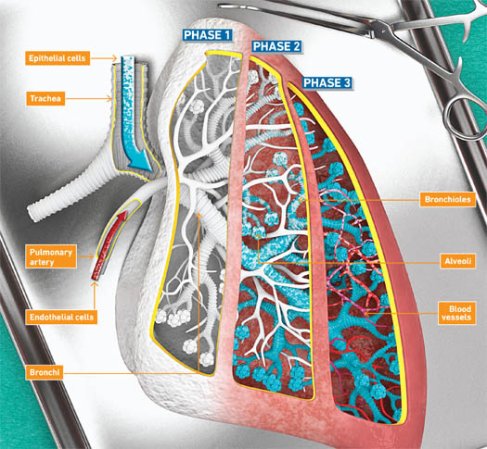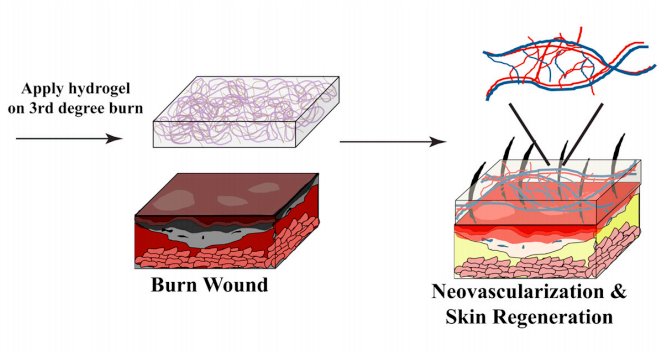

California researchers have created a tissue-engineered small-scale small intestine in mice, a breakthrough for regenerative medicine and a step toward growing new intestines for humans. The process re-creates all the layers of cells that make up a functioning intestine.
Tissue engineering, which promises to rebuild or replace injured or failing body parts, has seen some major advancements in recent months, with biological scaffolds used to create new bones in rabbits and regrown muscle in humans. But it’s more difficult to make a complete organ, which has several types of cells that must all function properly.
The small intestine is a good subject for this type of study because it’s a particularly regenerative organ, said Dr. Tracy C. Grikscheit, the lead author of a paper on this research.
Grikscheit and colleagues at The Saban Research Institute of Children’s Hospital Los Angeles took samples of mice intestinal tissue, including all the layers of cells — muscle cells and epithelial cells. Then the team transplanted the cells onto a polymer scaffold within the abdomen, a news release explains. Growth factor proteins encouraged the cells to replicate.
New small intestines grew on the scaffold, the researchers say, and they had all the constituents of a normal intestine. The new intestines “contained the most essential components of the originals,” according to the news release.
The research could someday be used to treat various intestinal disorders, including a particular gastrointestinal disease that affects premature babies, according to Children’s Hospital. An engineered replacement organ would conceivably last much longer than a transplant, if one is even available.
A paper on the research is published in the journal Tissue Engineering Part A.

![Tissue Engineer Prints Dummy Kidney Model Onstage at TED 2011 [Updated]](https://www.popsci.com/wp-content/uploads/2019/03/18/WC2FAU6QCBBQ2O7VXYAWLR4JJU.png?quality=85&w=476)












